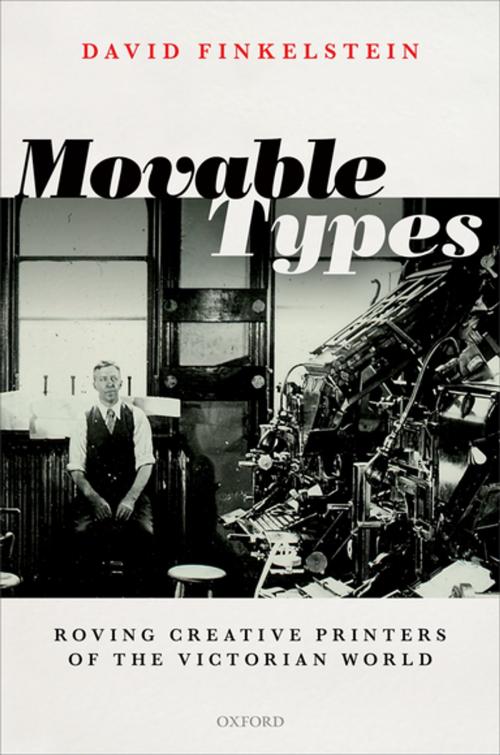Movable Types
Roving Creative Printers of the Victorian World
Nonfiction, History, World History, Business & Finance| Author: | David Finkelstein | ISBN: | 9780192560483 |
| Publisher: | OUP Oxford | Publication: | June 21, 2018 |
| Imprint: | OUP Oxford | Language: | English |
| Author: | David Finkelstein |
| ISBN: | 9780192560483 |
| Publisher: | OUP Oxford |
| Publication: | June 21, 2018 |
| Imprint: | OUP Oxford |
| Language: | English |
This is a study of international print networks developed across the English-speaking world over a significant part of the long nineteenth century. The first study of its kind, it draws on unique sources from Australasia, North America, South Africa, the British Isles, and Ireland, to explore how printers interacted and shared trade and cultural identities across international boundaries during the period 1830-1914. Morality, mobility, mobilisation, and solidarity were central to how compositors and print trade workers defined themselves during this period. These themes are addressed in case studies on roving printers, striking printers, and creative printers. The case studies explore the cultural values and trade skills transmitted and embedded by such actors, the global networks that enabled print workers to travel across continents in search of work and experience, the trade actions reliant on mobilization and information-sharing across the printing world, and the creative ideas that printers shared through such means as memoirs, poetry, prose, and trade news contributions to print trade journals and other public outlets.
This is a study of international print networks developed across the English-speaking world over a significant part of the long nineteenth century. The first study of its kind, it draws on unique sources from Australasia, North America, South Africa, the British Isles, and Ireland, to explore how printers interacted and shared trade and cultural identities across international boundaries during the period 1830-1914. Morality, mobility, mobilisation, and solidarity were central to how compositors and print trade workers defined themselves during this period. These themes are addressed in case studies on roving printers, striking printers, and creative printers. The case studies explore the cultural values and trade skills transmitted and embedded by such actors, the global networks that enabled print workers to travel across continents in search of work and experience, the trade actions reliant on mobilization and information-sharing across the printing world, and the creative ideas that printers shared through such means as memoirs, poetry, prose, and trade news contributions to print trade journals and other public outlets.















